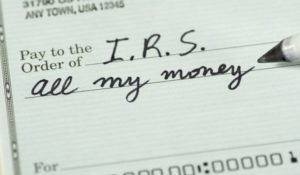The IRS recently switched collection tactics, and the agency now hires outside collection companies to recover debt. One of these companies, Pioneer Credit Recovery, has been using illegal and unethical tactics to collect these payments, reports the New York Times. If a debt collector contacts you, keep these tips in mind:
Know What to Expect
You might have heard that the IRS will never cold-call you to pursue a debt. Now that private debt collectors have some IRS accounts, this is no longer the case. The IRS will notify you if your case is being transferred to a collection agency, and they will also send you a copy of Publication 4518, which tells you what to expect from the process. Read through the material so you’re familiar with what is and is not going to happen.
Do Not Remit Payment to the Private Firm
Although some debts, such as medical debts or defaulted credit card debts, do get paid to collection agencies, that is not the case with IRS debts. All payments will go to the IRS or to the U.S. Treasury. Never make a payment to a debt collector who is representing the IRS. If the debt collectors request your credit card number or other financial information over the phone, they are breaking the law, and you might be the victim of a tax scam.
Seek Legal Counsel If You Cannot Afford to Pay
According to the Times article, several of the IRS debt collectors did not follow a clear policy in cases of financial hardship. If the debt collectors don’t report this information, the IRS won’t run a financial analysis that might relieve you of some or all of the debt. A tax consultant may help you resolve this issue and end calls and letters from the collection agency.
If your account has been referred to an IRS debt collector, and you are unsure what to do, contact Highland Tax Resolution at 720-398-6088. We can help you.

